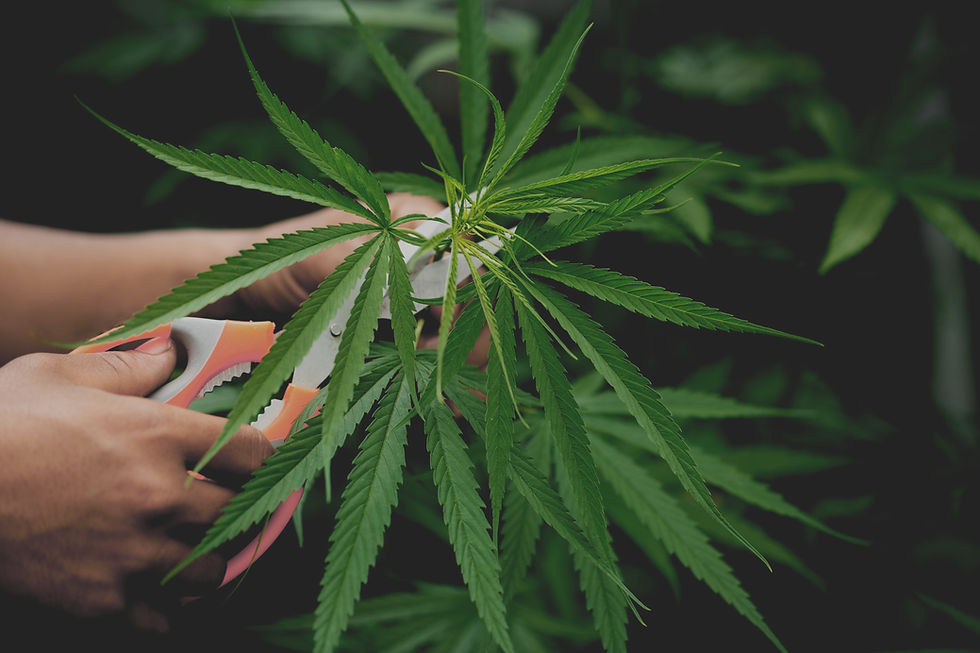The Truth About Marijuana Addiction
- Yasmin Maghsoudloo
- Jan 28
- 3 min read

Marijuana, also known as cannabis, has long been debated for its potential for addiction, especially as its legalization has spread across various regions. The truth about marijuana addiction involves understanding the difference between physical dependence, and psychological addiction, and how marijuana affects the brain.
1. Is Marijuana Addictive?
Yes, marijuana can be addictive, though it may not be as addictive as substances like alcohol, tobacco, or opioids. The risk of addiction is real, and the condition is called Cannabis Use Disorder (CUD). According to the National Institute on Drug Abuse (NIDA), about 9% of users develop dependence, and that number increases for those who start using in adolescence or use it daily (17% for teens and 25-50% for daily users).
2. Psychological vs. Physical Addiction
Psychological Dependence: Many people experience cravings for marijuana and use it compulsively. This psychological reliance, where users feel they need cannabis to relax or cope with life, is a key aspect of addiction.
Physical Dependence: Unlike substances like nicotine or heroin, marijuana doesn’t always produce strong physical withdrawal symptoms, but users can develop a tolerance, meaning they need more to achieve the same effects. When frequent users stop, they may experience withdrawal symptoms such as irritability, restlessness, sleep difficulties, cravings, and mood swings.
3. How Marijuana Affects the Brain
Marijuana contains THC (tetrahydrocannabinol), its psychoactive component, which activates the brain’s reward system. Over time, this can lead to changes in the brain’s dopamine production, leading users to need more of the drug to feel pleasure. Long-term use, especially in adolescents, has been linked to changes in brain development, affecting memory, learning, and impulse control.
4. Risk Factors for Marijuana Addiction
Several factors increase the risk of marijuana addiction:
Early Use: Those who begin using marijuana in their teens are more likely to develop dependence. This is because the brain is still developing, and exposure to THC can have lasting effects.
Frequency of Use: Daily or near-daily users are at higher risk of addiction.
Mental Health Issues: Individuals with anxiety, depression, or other mental health disorders may turn to marijuana to self-medicate, which can lead to dependency.
Genetic Factors: There may be a genetic predisposition to addiction that makes some people more vulnerable to cannabis addiction.
5. Withdrawal Symptoms
While marijuana withdrawal is not life-threatening, it can be uncomfortable. Symptoms typically begin within a week of stopping and may last up to two weeks. Common symptoms include:
Irritability
Anxiety or depression
Decreased appetite
Sleep disturbances (insomnia or vivid dreams)
Physical symptoms like chills or headaches
6. Myths vs. Reality
Myth: Marijuana isn't addictive because it's natural.
Reality: Just because something is natural doesn’t mean it’s free from addictive potential. Opium, tobacco, and alcohol are also naturally derived but can be highly addictive.
Myth: Marijuana is harmless.
Reality: While it has medical benefits and is less harmful than some drugs, long-term use can still lead to cognitive deficits, mental health issues, and addiction.
7. Marijuana and Mental Health
There is growing evidence that heavy marijuana use, especially in adolescence, may be linked to an increased risk of psychiatric disorders such as depression, anxiety, and even schizophrenia. Some research suggests that marijuana may exacerbate pre-existing mental health conditions.
8. Treatment for Marijuana Addiction
Treating marijuana addiction can be challenging, but it is possible. Treatment options include:
Cognitive Behavioral Therapy (CBT): Helps people identify and change negative thought patterns and behaviors related to marijuana use.
Motivational Enhancement Therapy (MET): Focuses on helping individuals increase their motivation to quit using marijuana.
Support Groups: Programs like Marijuana Anonymous (similar to Alcoholics Anonymous) provide peer support for individuals trying to quit.
Medication: While there are no FDA-approved medications specifically for marijuana addiction, research is ongoing, and some medications may help alleviate withdrawal symptoms.
Conclusion
Marijuana addiction is real, though it affects individuals differently. Understanding the risks, especially with early or heavy use, is crucial. While marijuana may not cause the severe withdrawal symptoms of some drugs, its impact on the brain and behavior can lead to significant dependence over time. For those struggling with marijuana addiction, effective treatments are available to help overcome dependency and improve overall well-being.




Comments